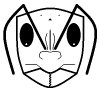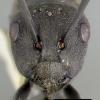And in any case, I do think there's still some value to studies of queenless, broodless colonies—you just have to take the facts into consideration, which you have so perfectly elucidated in your post. Keep in mind, for example, that many species—particularly those that inhabit more extreme climates in which colonies undergo diapause—do not have brood at all for significantly long periods of the year.
True but ants that go into a summer estivation period usually have specialized ways to deal with that, for example Prenolepis imparis repletes are basically fat and protein storages (compared to real honey pots which mostly store sugars and water). Actually Prenolepis imparis even raises brood during their summer estivation period (that's why so many people fail at raising them, they need to stock up on protein during spring BEFORE they have brood, so they can raised their brood from the food stored in the repletes).
Even our ordinary Lasius niger here have the problem that during summer it can become so hot that they can barely leave their nests for several weeks, they just retreat to deeper chambers and live off the sugars, fat and protein their repletes have stocked up on before (and if in dire need they can still eat a part of the brood).
Is the salt a byproduct of your region? This is the first I've heard this suggested.
Ants need salt, too. Actually every living being with a basic nerve system (and thus a sodium potassium pump to keep it in a functioning state) needs salt.
I regularly feed my ants some shrimp, too. They even have a salt licking stone for rodents although I'm not sure if they're using it.





















